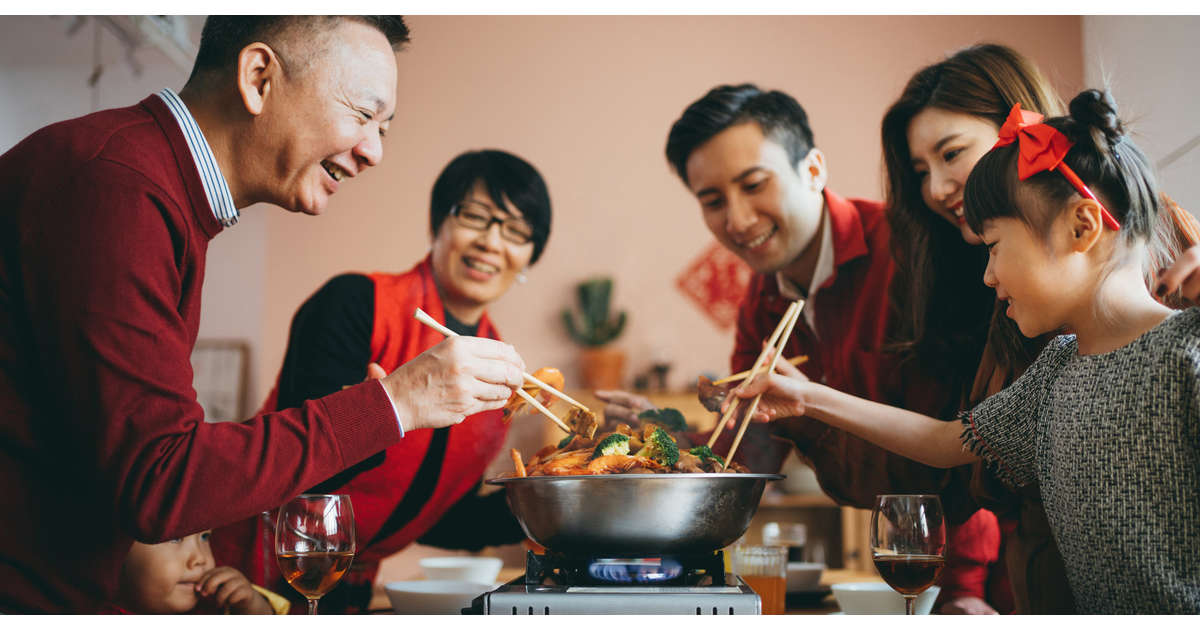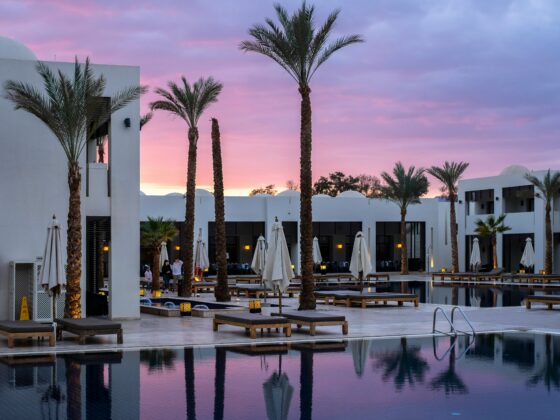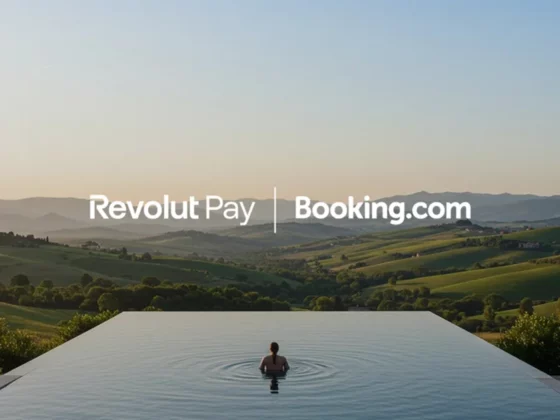
Booking.com’s ‘Taste of Home Asia Pacific‘ research reveals that food is playing a central role in shaping the holiday home experience in 2025. Travelers across the region are increasingly selecting holiday homes that offer accessibility and freedom to dine, host and/or cook in unique, authentic spaces and destinations. These culinary moments are becoming more than just mealtime, they are opportunities for connection, cultural immersion and creating lasting memories that transform food into cultural gateways rather than just travel highlights.
The research, based on a commissioned survey of over 8,000 travelers across Asia Pacific, reveals how food-driven experiences profoundly influence travel decisions. As travelers seek more meaningful and personalized stays, holiday homes have emerged as a key part of this evolving trends.
Holiday Homes – The Secret Ingredient for Foodie Stays
The diversity of food trends and preferences profoundly influences travel across Asia Pacific. Holiday homes are a chosen accommodation type for this culinary exploration, with 97% of foodies altering their cooking and eating habits whilst travelling. They frequent local markets (85%), cook local dishes (34%), try new appliances (33%) and experiment with new recipes (34%). For Australians, food significantly shapes travel, with 79% influenced by it and 82% selecting destinations for specific food spots. Holiday homes offer flexibility (46%), privacy (44%), kitchen access (41%), and freedom to eat at any time (40%), supporting fresh, communal meals.
Dining out is also a holiday highlight for all Australian foodie travelers, with 62% regularly eating at local restaurants whilst on vacation. Additionally, 36% book holiday homes for better access to local dining experiences. Ultimately, 82% of Australians have chosen a destination solely to visit a particular restaurant or food establishment.
There are four standout trends shaping the culinary holiday home travel experience across Asia Pacific. From who’s taking charge in the kitchen to how travellers shop, dine, and define their foodie identities, these trends reveal new insights behind the region’s growing appetite for holiday home stays.
1. THE NEW HEAD CHEF IN THE HOLIDAY HOME
The “chef” role in holiday homes is shifting. Only 13% of travelers default to their mum as cook. Younger generations are now confidently taking the lead, blending family recipes with new ideas. Gen Z (38%) most often cooks family recipes, compared to Millennials (34%), Gen X (31%), and Boomers (16%). Gen Z (23%) also most frequently cooks their own food, versus Millennials (16%), Gen X (10%), and Boomers (4%). Notably, 25% of Aussies cook to host, rising to 32% for Gen Z.
2. HOLIDAY KITCHEN PERSONAS
Holiday homes are transforming more than just where we eat; they’re revealing who we are when we step into the kitchen. Nearly all of Asia Pacific travelers (97%) report a shift in their cooking habits while on holiday, with food becoming a way to relax, connect, and even experiment. Four distinct holiday kitchen personalities are emerging across the region:
- The comfort-driven Traditionalist who favours family recipes (38%) and comfort foods (33%).
- The bold Experimenter who makes up a third (34%) of those that enjoy trying new recipes and cooking methods.
- The laid-back Minimalist who shifts to cooking simpler and quicker meals when staying in a holiday home (42%)
- The ever-entertaining Socialite, known for their kitchen flair and lean towards communal or group cooking (34%)
Together, these personas show that the holiday home kitchen is no longer merely functional; it’s a stage for flavor, creativity, and connection.
3. TROLLEY TOURISM
Forget souvenirs; today’s travelers are filling their shopping baskets with fresh produce and pantry staples. Across Asia Pacific, holiday homes are fueling a rise in “trolley tourism,” where visits to local food markets, foodie festivals and even trendy or cult-favorite supermarkets are becoming part of the travel experience. Aussie travelers, in particular, are embracing this trend, choosing to support local businesses and cook with fresh, seasonal or regional ingredients during their stays. It’s not just about eating well; it’s about shopping smart and connecting with the local food scene. Notably, 88% of Aussie travelers enjoy visiting local supermarkets or food markets on holiday, a figure that rises to 96% among frequent holiday-home bookers.
4. PORTABLE PANTRY
Travelers across Asia-Pacific are bringing their kitchens with them. They pack favorite spices and appliances, creating a “portable pantry” for comfort, tradition, and convenience. This makes holiday kitchens familiar while allowing destination exploration. 80% of Australians bring food or cooking items, including tea/coffee (38%), wine (25%), sauces (24%), coffee machines (13%), and BBQ tools (13%). This trend is even more common in other Asia Pacific destinations, with over 90% of travelers from India, South Korea, Vietnam, Thailand, and Indonesia doing so.
Travelers choose types of homes that allow them to cook, dine, and connect, from beachside barbecues to city kitchens. In Australia, nearly half of foodie travelers (48%) prefer beach houses for food-focused stays. Other popular options include city apartments (38%), private villas (36%), country cottages (32%) or cabins (29%).
Holiday homes are also ideal for both relaxed getaways and major celebrations, offering guests the flexibility to cook nourishing meals, host lavish feasts, or balance both with exploring local food scenes. In Australia, leisure is the primary reason for booking behind family trips, with 38% booking purely to unwind, 29% for wellness escapes, 26% for birthdays or anniversaries, and 25% for trips with friends.
The Booking.com ‘Taste of Home Asia Pacific’ report shows us food is at the centerpiece of holiday home travel. Travelers embrace holiday homes not just for comfort, but to explore local flavors, experiment with cooking, and connect over shared meals. Culinary experiences are becoming a key factor in travel decisions, transforming holiday homes into dynamic spaces for discovery and connection.
At Booking.com, we understand what makes a holiday home stay easy and memorable. This research provides valuable insights into what travelers are looking for – helping foster positive conversations on the role of alternative accommodations in supporting local tourism economies. These findings also empower property owners to better understand traveler preferences and plan for their guests’ needs. with over 8.4 million holiday homes amongst our 31 million listings, our goal is to offer the widest possible choice of great stays globally, and make it easier for everyone to experience the world. Laura Houldsworth, Managing Director for Asia Pacific at Booking.com
For more information about Booking.com’s Taste of Home Asia Pacific and to download the report please click here.
METHODOLOGY
This study was conducted online between July 25 and July 28, 2025. The sample consists of 8,047 adults aged 18 years and older from Australia, New Zealand, Indonesia, India, Japan, South Korea, Thailand and Vietnam who have booked or stayed in holiday homes or short-term rentals when travelling either domestically or internationally. For brevity, they will be referred to as ‘Aussie travellers’ or ‘Aussie holiday home guests’ in this report. YouGov designed the questionnaire, in collaboration with Red Havas and Booking.com. Following the completion of interviewing, the data was weighted by age, gender and region to align with the estimated population of holiday home guests in Australia.
About Booking.com
Part of Booking Holdings Inc. (NASDAQ: BKNG), Booking.com’s mission is to make it easier for everyone to experience the world. By investing in the technology that helps take the friction out of travel, Booking.com’s marketplace seamlessly connects millions of travelers with memorable experiences every day. For more information, follow @bookingcom on social media or visit globalnews.booking.com. For more information, follow @bookingcom on social media or visit globalnews.booking.com.
Press Office Booking.com
+31 20 709 4743
Booking.com







